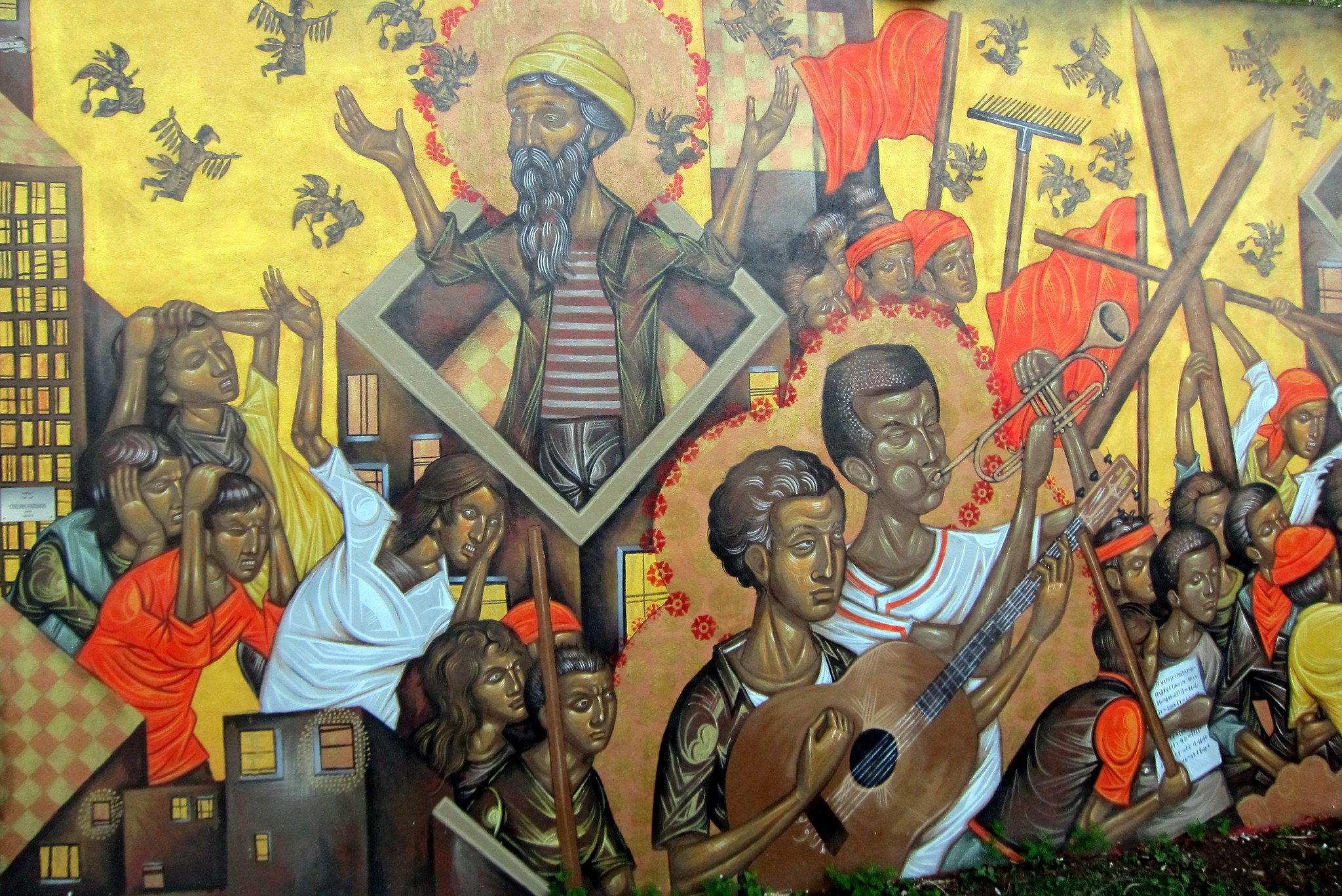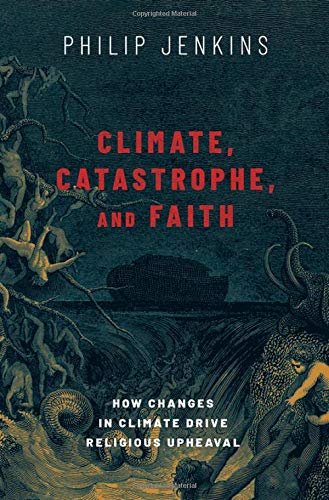Trends in Christianity in the U.S. and the Global South
Dr. Daniel Ramírez talks to historian Dr. Philip Jenkins about his work
"Allegory of Florida" (2009) mural by Greek artist Stelios Faitakis, Wynwood Walls, Miami, Florida, 2011. His first in the United States, the mural incorporates the styles of classical frescoes, Byzantine art, and early 20th-century Mexican Muralism. Photo: Wally Gobetz
Historian Dr. Philip Jenkins is Distinguished Professor of History and Co-Director of the Program on Historical Studies of Religion at Baylor University. A Catholic-turned-Episcopalian, he has published thirty books, which have been translated into 16 languages. Some of his work focuses on the study "of global Christianity, past and present; of new and emerging religious movements; and of Late Modern US history, chiefly post-1975." His most recent books are A Global History of the Cold War, 1945-1991 (Palgrave Macmillan, 2021); Climate, Catastrophe, and Faith: How Changes in Climate Drive Religious Upheaval (Oxford University Press, 2021); and, forthcoming, He Will Save You from the Deadly Pestilence: The Many Lives of Psalm 91 (Oxford University Press, 2022).
In this episode of OP Talks, fellow historian Dr. Daniel Ramírez talks to Dr. Jenkins about his work, specifically looking at trends in Christianity in the United States and in the Global South. No one could have predicted "the sheer speed with which the populations of the world grew in particular areas," notes Dr. Jenkins. "In Africa in 1900, there were 10 million Christians—10 percent of the population. By 2000, there were 360 million…which is the largest numerical change that has ever happened in any religion anywhere...You try and avoid the word ‘revolution' if you can, but, yeah, the 20th century was the time of a Christian revolution of astonishing speed."
Additionally, what Dr. Jenkins has often seen are “people who have worked as missionaries, especially in Latin America, bringing back some ideas.” In Anglican churches in Britain, for instance, “there's been a great move to basically [engage] spiritual-warfare ideas and, in every case, the key people are those who have lived with the Chilean Pentecostal revival [and] as missionaries.” He further notes that key movers in the Pentecostal churches in the U.S., usually described as the new Apostolic reformation, have had many years of experience in those mission fields in places like Bolivia, “so they know what they have seen in those countries, and they are bringing back those ideas.” Although “the theology, the rhetoric, the worship stuff [may be] Anglo,” Dr. Jenkins points out, “it's not the one-way transaction…there is that feedback.”
Climate, Catastrophe, and Faith: How Changes in Climate Drive Religious Upheaval (Oxford University Press, 2021)
By Philip Jenkins
A Global History of the Cold War, 1945-1991 (Palgrave Macmillan, 2021)
By Philip Jenkins
He Will Save You from the Deadly Pestilence: The Many Lives of Psalm 91 (Oxford University Press, 2022)
By Philip Jenkins






